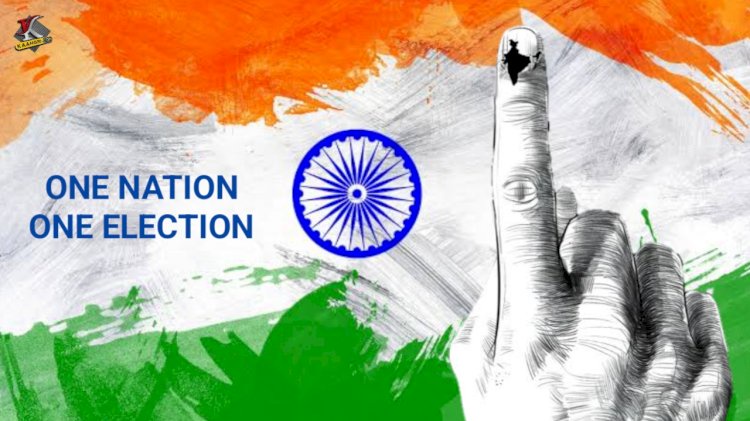The concept of "One Nation, One Election" has been a topic of considerable debate and discussion in the political landscape of India. This ambitious idea envisions synchronizing the Lok Sabha and state assembly elections to create a unified electoral cycle across the country. While the proposal aims to streamline the election process and reduce the burden on resources, it is not without its share of advantages and disadvantages. In this article, we will explore the pros and cons of the One Nation One Election initiative.
Pros:
-
Efficient Utilization of Resources:
- One of the primary arguments in favor of One Nation One Election is the efficient use of resources. Conducting multiple elections in a single year puts a significant strain on financial and human resources. By aligning elections, the government can potentially save substantial funds that could be directed towards other developmental projects.
-
Reduced Campaign Expenditure:
- Simultaneous elections could lead to a reduction in overall campaign expenditure. Political parties would need to invest in campaigning only once during a synchronized election cycle, thus lowering the financial burden on both parties and candidates.
-
Stability and Governance:
- With synchronized elections, there is a possibility of providing stable and consistent governance. Frequent elections can disrupt the development process as political focus shifts towards campaigning. Longer governance periods may enable elected representatives to implement policies and projects without the constant pressure of impending elections.
-
Increased Voter Turnout:
- Some proponents argue that simultaneous elections might encourage higher voter turnout. With all elections happening concurrently, voters are more likely to participate, as they do not have to engage in the voting process multiple times within a short span.
Cons:
-
Challenges to Federalism:
- Critics of One Nation One Election express concerns about its impact on federalism. India's diversity is reflected not only in its cultural and linguistic landscapes but also in the varied political scenarios across states. Synchronizing elections might undermine regional issues and dilute the federal structure by centralizing the political discourse.
-
Practical Challenges:
- Implementing simultaneous elections poses various practical challenges, such as the synchronization of terms for state governments, dealing with premature dissolution of assemblies, and the logistics of organizing a nationwide electoral process. These challenges may require constitutional amendments and a meticulous transition plan.
-
Dominance of National Issues:
- Synchronized elections might lead to a dominance of national issues over local concerns. Regional problems and specific state-level priorities could take a backseat during campaigns, as the focus shifts towards broader national narratives.
-
Potential for Political Maneuvering:
- Critics argue that simultaneous elections could lead to political maneuvering, with political parties aligning their strategies to gain an advantage at both the national and state levels. This could result in a more polarized political landscape, diminishing the diversity of political representation.
Conclusion:
The One Nation One Election proposal presents an intriguing vision for streamlining India's electoral processes. While it offers potential benefits such as resource efficiency and stable governance, the inherent challenges, including those related to federalism and practical implementation, cannot be overlooked. Striking a balance between the advantages and disadvantages requires careful consideration and collaborative efforts from all stakeholders. As India continues to evolve, the discussion around the feasibility and implications of synchronized elections remains a crucial aspect of its democratic journey.


No comments yet